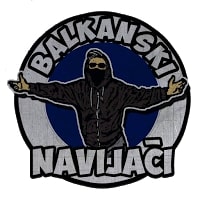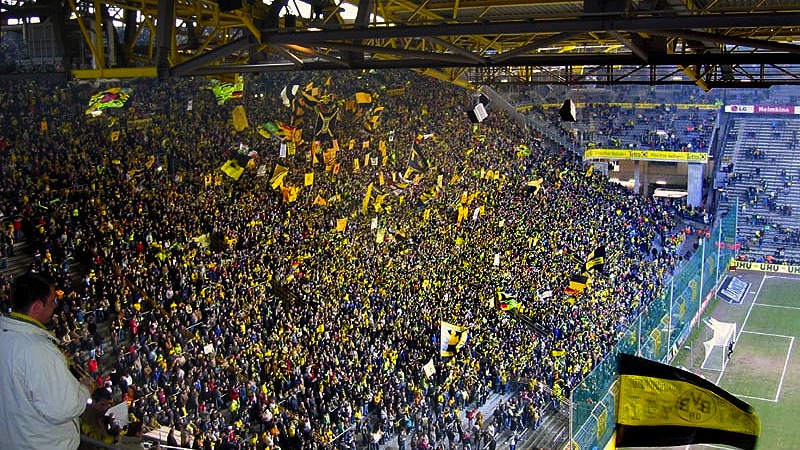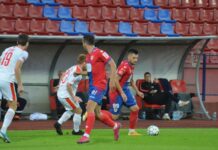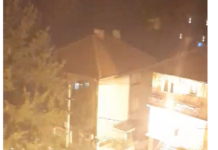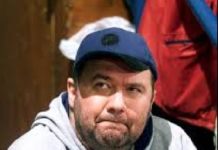Ugly tear-ups, classic one-upmanship and plastic phalluses: why Dortmund vs Schalke is Germany's big one
The two sides despise one another, yet revel in each other's success when Ruhr pride is at stake. Makes no sense? Read on as Uli Hesse charts the rise of the Revierderby for the July 2006 FourFourTwo magazine…
Shortly before kick off on a chilly February afternoon in Germany’s Ruhr region, the players of Schalke 04 and Borussia Dortmund stand at the halfway line of the impressive Veltins Arena.
Waving their arms in the direction of the two main stands to greet the sell-out crowd of 61,500 that have come out to watch Germany's most famous derby, it appears to be business as usual – until both sets of players turn to greet the fans behind the goals.
With a look mixing shock with bemusement, the players watch as the Dortmund fans raise a lengthy banner with the words ‘F*** You!’ repeated several times, a somewhat ungrateful message aimed at their hosts.
As a nice extra touch, the fans who haven't been asked to hoist the banner high into the air make their feelings known by waving hundreds of pink plastic penises aloft – phalluses the size of those inflated bananas made popular on English terraces during the late 1980s. It’s hardly the most sophisticated piece of choreography, but the message is clear.
Turning to acknowledge the Schalke end, the message is a little more cerebral: a gigantic and elaborate picture of a brown leather football [think the 1960s] wearing a crown, beneath the caption: ‘Only he who honours his roots will achieve great things’. Around it, cartoon characters carry placards which read ‘Stop police despotism’, ‘Fans – not customers’ and ‘Lift the stadium bans’, more of which later.
The message from this end is clear: while it’s fine to wave your plastic cocks around, never lose sight of the real enemy; the police, FIFA, and the impending World Cup Finals.
“It's always been a defining mark of their life”
The game’s glitziest event is due in town any day now, but many of the locals would prefer it to stay well away. This wasn’t quite what FourFourTwo expected when we dropped in on derby day, but then for most German football fans, this is not a normal season and this is clearly not a run-of-the-mill rivalry.
Kasper Ryvig Johansson is a member of Borussia Dortmund’s ‘Unity’ ultras, a 23-year-old Dane who moved to the city two years ago after falling under BVB’s spell. He hadn’t much cared about football until he watched the Euro ‘92 semi-final between Denmark and Holland, and what followed defies logic. “I don't know why, but Fleming Povlsen became my favourite player,” he says, “and he played for Dortmund in Germany.”
German football grounds were a dark and dangerous place to be, yet those garish, sensationalist lines tell only half the story”
So it made perfect sense for Kasper to drive seven hours each way to see Dortmund play, until eventually he gave up his well-paid job at a salmon factory and relocated to the city for good in 2004.
He had no means of income and nowhere to live, but he had Borussia Dortmund and a surrogate family on the terraces, where he soon learned all he needed to know about what football in Germany's Ruhr area really means: Schalke vs Dortmund.
“The people who grew up here have been raised on the derby,” he smiles. “It's always been a defining mark of their everyday life and it's difficult to grasp the scope of this rivalry when you're living in Denmark, but let’s just say that I was educated very well.” By that he means that he has quickly come to hate Schalke with a passion that would seem mildly bizarre even without his background.
Many of his friends are banned from league grounds because of their involvement in an incident that saw more than 100 Dortmund supporters encircled by armed police forces. It was a derby between Schalke and Borussia, naturally, but not the first teams, nor even the reserves. On this occasion, the under-18s were playing. Kasper shrugs: “But it was much more extreme in the old days.”
His claim holds particularly true for the late 1970s and throughout the 1980s, when the mono-cultural Ruhr area, fired on coal and built on steel, suffered economic meltdown. Alongside mass unemployment, the collapse left the Ruhr’s two most successful clubs with no way of competing with the rich clubs in the north and south of the country.
Football frustration and social despair soon blended with the sporting rivalry to yield frightening results. In 1979, Schalke hooligans formed what would quickly become one of the most notoriously violent firms in Germany – the ‘Gelsenszene’ (Schalke is a borough of Gelsenkirchen.)
To counter the threat, Dortmund thugs founded the fascist ‘Borussenfront’ in 1982 and the next decade was no fun at all as the two groups tore into each other.
In 1984/85, for example, 64,000 fans flocked to Schalke's ground to see them face Bayern Munich – only 41,000 had dare turn up for the derby. In Dortmund, 47,000 paid to see Bayern but only 34,000 for Schalke.
German football grounds were a dark and dangerous place to be, yet those garish, sensationalist lines tell only half the story, because the rivalries are more complicated than they may first appear. Contrary to popular opinion, German football fans are a confusingly complex bunch.
More than a region
The Ruhr area in Western Germany is home to Schalke and Dortmund, plus a number of lesser outfits such as Essen, Bochum, Duisburg and Oberhausen. In terms of size, the Ruhr is not unlike greater London, only the motorways don't circle this place as they do in England’s capital but run through it like arteries.
For the traveling football fan, nowhere is more than 30 minutes away on public transport. In recent years there have been attempts to combine the region’s countless independent municipalities to create Ruhr City, but that will never work – local pride overrides everything.
In 1975, Wattenscheid was incorporated into Bochum and Wanne-Eickel was made a district of Herne, yet the people who live in these places have never accepted the change and will castigate you with the fervour of a Basque separatist if you refer to them as a “Bochumer” or “Herner”.
Such parochialism is the lifeblood of the region, and it makes for some of Europe’s most intense football rivalries.
One book on the history of Ruhr football is entitled In the Land of a Thousand Derbies, and it’s only a slight exaggeration. Because of the number of teams crammed into the region, everybody hates everybody else here. But dig deeper and you discover that the hatred has been fuelled by the game’s development in Germany as a whole.
Until 1963, (West) Germany had neither professionalism, nor a nationwide league. For well over half a century the first stages of the national championships were contested in regional leagues among players who were part-timers or amateurs, players representing their own communities.
During the 1930s and 1940s, when Schalke replaced Nuremberg as the country's dominant team (winning six of the seven championships), the players all came from the Gelsenkirchen area and many had worked down the coal mines, or were still doing so, alongside the fans who cheered them on.
Subsequently, the Ruhr’s biggest clubs would generally not cross swords with the likes of Munich, Frankfurt or Hamburg, but with Herne, Bochum and the countless other small clubs representing little more than hamlets.
For decades, football fans attending a top-flight match in the Ruhr could always take the tram and be home in time for dinner. Bayern Munich and VfB Stuttgart didn't even exist to most supporters. It was a footballing microcosm in which a fan saw nothing but derbies.
Ironically, the fiercest of them all, the one that has come to define the region and dominate the whole of German football – Schalke 04 versus Dortmund – isn't even the most traditional of those rivalries, not by a long shot.
Borussia Dortmund were latecomers to the game. Formed in 1909, five years after Schalke, the club didn't develop until the end of the war in 1918 and didn't even become the dominant force in their own city until 1936. Thus there was no real rivalry with Schalke until one grey afternoon in May of 1947.
Playing for the championship of Westphalia, a title Schalke had held for 21 years running, Dortmund finally broke their stranglehold with a 3-2 win in driving rain. Twice behind, the underdogs fought back and won with a goal five minutes from time.
‘Footballing Germany will sit up and take notice’, declared one national sports paper the following day, and while they were referring to the end of Schalke's regional and national dominance, they may well have been predicting the birth of a new rivalry to eclipse all others in Germany.
Deep down, both teams are very much alike. It may be the reason why the rivalry is so heated. We're constantly trying to outdo them”
By the late 1940s, Germany boasted a number of famous, ancient rivalries. The biggest of all at that time involved the sister cities of Nuremberg and Fürth, a rivalry so intense that Fürth's star player Hans Sutor had been forced to leave the club in 1920 because he married a Nuremberg girl.
When Germany's national team travelled by train to Amsterdam in April of 1924, such was the mutual loathing that the German FA rented one carriage for the Nuremberg players and a separate carriage for those from Fürth.
There was also bad blood in Munich, between Bayern and 1860, and in Hamburg, between HSV and St Pauli, but these were derbies people could understand: posh club versus blue-collar team, proud locals against ambitious cosmopolitans, left-wing versus right-wing.
Whether you go to Manchester, Glasgow or Barcelona, people will tell you their rivalry is borne of differences in class, politics or even faith. They make no such claim where Schalke-Dortmund is concerned.
“Deep down, both teams are very much alike,” admits Kasper, the young Dane with an outsider’s perspective and an insider’s knowledge. “There are many similarities between the two clubs,” agrees Stuart Dykes, a Schalke fan. “In fact, that may be the reason why the rivalry is so heated. We're constantly trying to outdo them.”
Stuart grew up as a Manchester United fan in Mansfield but caught the “Schalke bacillus”, as he puts it, in 1983, when he was 19 and briefly studying in Duisburg. In 1987, having majored in German, he decided to live in the country full-time.
“My girlfriend suggested we both teach English in Germany for two years, then we'd go back to England and teach German there,” he explains. “At least that was the plan. She went back to England and I stayed here.”
As one relationship ended, another had already begun and Stuart fell in love with the club; co-editing a Schalke fanzine and becoming a leading figure in the Schalke Fan Initiative, a group fighting racism and hooliganism.
He represented the club when the Alliance of Active Football Fans (BAFF – the missing B stands for Bundnis, the German for ‘Alliance’) came into being in the mid-90s. BAFF represents supporters from different clubs united in their stance against violence and the pitfalls of commercialism, the most obvious being all-seater stadiums.
“The funny thing about those BAFF meetings,” says Stuart, “was that we got on best with the Dortmund fans. That deeply irritated the fans from the other clubs, because they thought Dortmund versus Schalke was this life-and-death thing. But we had more common ground than we realised.
“We had that Ruhr area thing in common, the whole working-class mentality. The St Pauli fans, for instance, tended to be those student types and we got on with them as well, but there were a lot more similarities between the Dortmund and Schalke guys.”
Both clubs, and both sets of fans, are particularly proud of their working-class roots, almost irrationally so. In fact, they both regularly hear the chant “You are Ruhr wops” from opposing fans, which refers to their image as clubs for coal miners and steel workers as well as to the fact that many families in the Ruhr area are descendants of the Polish and Silesian workers who migrated during industrialisation in search of jobs.
Hearing those taunts, both sets of fans will reply with a resounding: “Yes, we are Ruhr wops!”
The big difference between them, it appears, is in the little detail. “They are more asocial,” grins Kasper, and he appears to have a point. It's not that Schalke are the proletarians and Dortmund not, it's just that Dortmund are a little more polished.
For example, Borussia's famous Westfalenstadion has recently been renamed Signal Iduna Park after an insurance company. Gelsenkirchen, by comparison, has had greater problems attracting such modern, upmarket industries – which is why Schalke's ground today carries the name of a brewery (the Veltins Arena) rather than an investment firm.
Upping the one-upmanship
For a long time, the distinction was epitomised by the club's two business managers: Dortmund had the articulate, convent school-educated Michael Meier; Schalke had the cigar-munching Rudi Assauer, a former player. Neither man missed a chance to put the other down – Meier labelled Assauer “a cashmere hooligan”, Assauer referred to his rival as “the boy from the monastery”.
But they were equally ambitious, trying to bring back the glory days after the 1970s and 1980s had been cruel to both clubs. Meier masterminded the remodelling of Dortmund's ground, Assauer built a new one from scratch, and both stadiums were impressive enough to host European finals (Dortmund in 2001, Schalke in 2004) and deemed worthy of this year's World Cup.
It’s little surprise, given that until Bayern’s Allianz Arena opened last year, both grounds had held the Bundesliga’s biggest crowds: last season, Dortmund had the league's highest average attendance (70,500), while Schalke were in second place with 60,000.
On the pitch it’s a similar, not to mention slightly spooky, story. On May 21, 1997, Schalke pulled off a major upset to win the UEFA Cup against a highly fancied Inter Milan side. On May 28, Dortmund followed suit by stunning star-studded Juventus to win the Champions League.
Those seven amazing days capped both clubs’ unexpected rise during the 1990s, from rags to riches, from relegation fodder to European heroes. Only they couldn’t both bask in the glory of their achievements.
“That Dortmund won the Champions League only days after we won the UEFA Cup took the shine off our own triumph,” says Stuart somewhat ruefully. Indeed, one half of the Dortmund fans who were in Munich to see Borussia beat Juve sang a chant that was directed at Schalke to gleefully remind the rivals that Borussia's cup was “a class above S04's”.
However, as those fans mocked Schalke, the other half turned on them and began to chant “Ruhr, Ruhr, Ruhr!”
It was a telling moment, because the majority of football fans in Germany have both local pride and regional pride, both of which come way before national pride.
That pride is particularly pronounced in the Ruhr area, where people feel that the rest of the country still looks down on them as thick grafters and clings to the outdated cliché that the region is an ugly and polluted industrial wasteland. Thus a person from Bochum will knock someone from Essen – but will passionately jump to his side as soon as a stranger dares to do the same. It took Kasper and Stuart some time to unravel this emotional network.
I tried to imagine being at Old Trafford and hearing that City had sneaked past Liverpool on the last day. You wouldn't hear a cheer. No way”
“In May of 1996, we qualified for the UEFA Cup by beating title-hopefuls Bayern,” says Stuart. “Then the news came through that this also meant Dortmund had won the league. And suddenly a cheer went up! People started singing ‘Ruhr, Ruhr’.” A decade later, he still sounds slightly incredulous when relating the events.
“I tried to imagine being at Old Trafford and hearing that City had sneaked past Liverpool on the last day. You wouldn't hear a cheer. No way. This would never happen in England.”
The belief in Germany, however, was that two Ruhr clubs had conspired to deny stuck-up, rich and mighty Bayern Munich from Bavaria. Better the devil you know, it would seem. “What struck me most when I came here, as an outsider, was that you can get on a tram to go to the derby and see fans mingling,” Stuart explains. “It's pretty cultivated. Even today, you couldn't do that to the same extent in England.”
“Those who watch Germany are totally different”
That both club and region are so terribly important has another effect, one which may become more apparent this summer. When I ask Kasper if he's got his World Cup tickets yet, his look suggests I require a new set of marbles.
“We're not at all interested in that. The people who go to see Germany play and the people who go to league games, that's two totally different sets,” he explains. As a result, he and his German friends will be boycotting the entire tournament. “The World Cup is bad for the true fans,” he says, suggesting a security clampdown will infringe on their rights as fans. “Real fans in Germany don't care about it at all,” he sniffs.
Stuart agrees, but suspects that it’s only because Germany are not playing particularly well at the moment. Then again, he can remember a Germany versus Holland game at Gelsenkirchen in 1998 when the crowd sang nothing but Schalke songs for an hour. “After that, the German FA said they shouldn't give an international to Gelsenkirchen again,” he smiles. “But what did they expect, the Germany team was full of Dortmund and Bayern players.”
So it seems that cheering for rivals Dortmund is fine when they represent the Ruhr, but not when they represent Germany. FFT won’t pretend not to be slightly puzzled by the Ruhr’s particular set of unwritten rules, but at least we’re not alone.
“I remember in May of 2000 I got a phone call from (well-known Schalke fan) Bodo Berg,” says Stuart. “He said: ‘The world has ended. We have signed Andreas Möller!’”
Möller remains the most hated Dortmund player of them all and Bodo was somewhat distressed. “I had to drive over to console him,” smiles Stuart. “He said he'd never go to a Schalke game again. I couldn't understand that, and that's when he told me I wasn't a real Schalke fan, that I didn’t understand what it meant.”
Stuart still shakes his head over the episode. “I mean, United bought Cantona from Leeds, and that didn't mean we could not support him. But Bodo was true to his word. The next season was Schalke's greatest year in living memory. But Bodo didn't go to a single home game.”
As you may have sensed by now, Schalke-Dortmund is most definitely not your run-of-the-mill rivalry.
